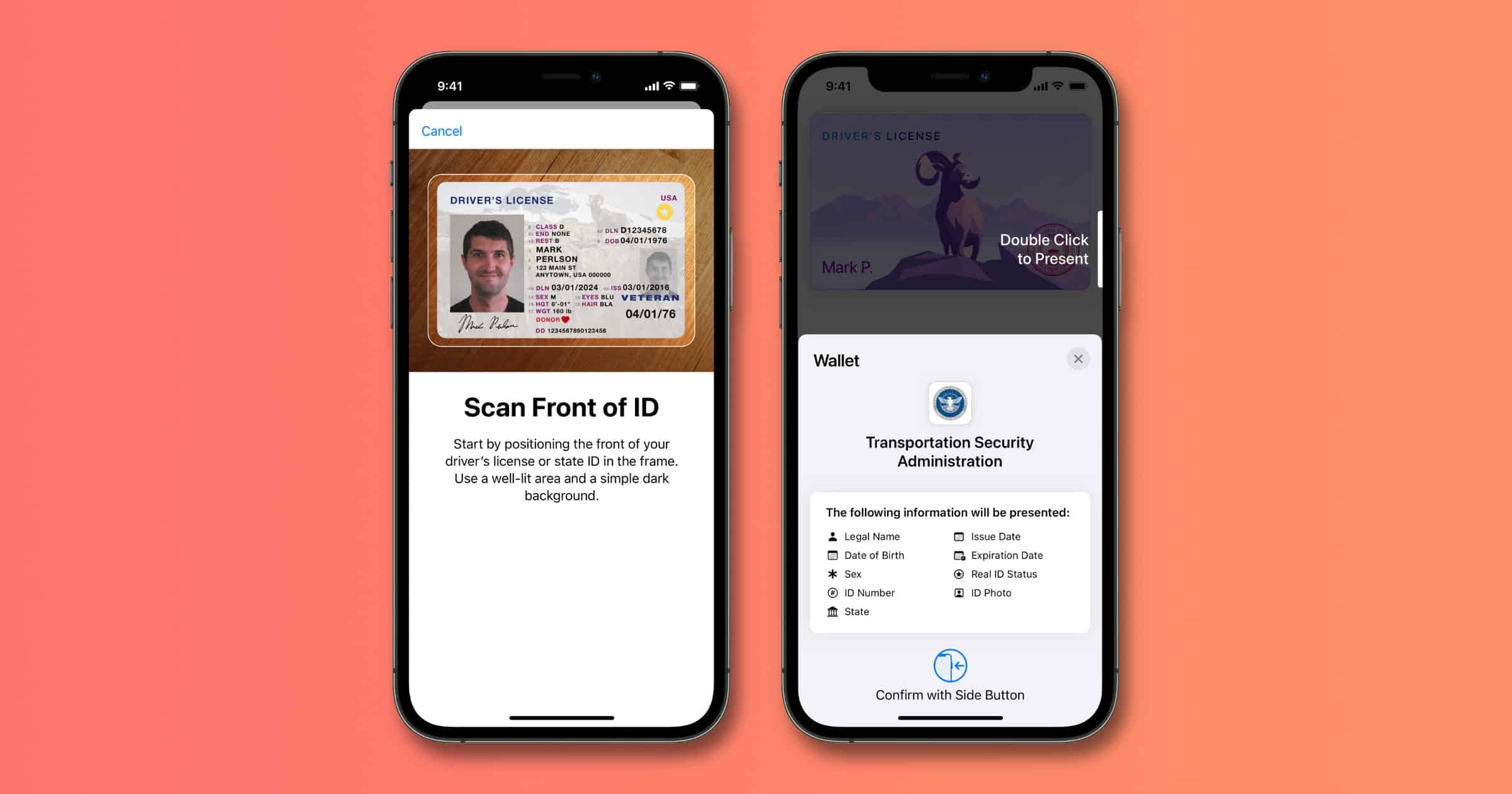On Wednesday Apple revealed which U.S. states are the first to support storage of IDs within Apple Wallet in iOS 15 and watchOS 8. Arizona and Georgia will be the first states to introduce this new innovation to their residents, with Connecticut, Iowa, Kentucky, Maryland, Oklahoma, and Utah to follow.
IDs in Apple Wallet
Announced at WWDC 2021, Apple is enabling ID storage for Wallet. This works with driver’s licenses and state IDs. The Transportation Security Administration (TSA) will let select airport security checkpoints and lanes in participating airports as the first locations customers can use their digital ID.
Upon tapping their iPhone or Apple Watch, customers will see a prompt on their device displaying the specific information being requested by the TSA. Authentication with Face ID or Touch ID will be required just like when people use Apple Pay. People don’t need to unlock, show, or hand over their device to present their ID.
Privacy
Apple also shared the privacy and security features with the digital ID:
- Apple and the issuing states do not know when or where users present their IDs.
- Driver’s licenses and state IDs in Wallet are only presented digitally through encrypted communication directly between the device and the identity reader, so users do not need to unlock, show, or hand over their device.
- Apple’s mobile ID implementation supports the ISO 18013-5 mDL (mobile driver’s license) standard.
Participating states and the TSA will share more information at a later date about when support for mobile driver’s licenses and state IDs in Wallet will be available in each state, and which TSA airport security checkpoints and select lanes it will be available at first.

Send a message to your state governments. Spam your friends to do likewise.
Governments do respond to constituent interests in such things. Especially when you say blah-biddy-blah state is doing it, why aren’t we? No state wishes to be the backward state in such things for the most part.
California, where are you?
Andrew:
The transition to the digital is real. As both the public and private sector move to this venue, casual observers will see the convenience and security benefits of this technology, which in turn will bring us to an inflection point, at which case, adoption will make this a standard for essential documents.
Hopefully, both Apple (and the tech industry writ large) and key stakeholders will be proactive in implementing security measures.